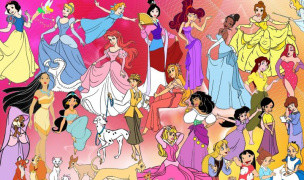 20 Terms
20 TermsHome > Industry/Domain > Biology; Medical > Human genome
Human genome
The human genome consists of 23 chromosome and the small mitochondrial DNA. 22 of the 23 chromosomes are autosomal chromosome pairs and the last one being a gender-determining pair. In total, the human genome contains the sequences of the 3 billion chemical base pairs that make up human DNA and approximately 20,000-25,000 genes. By understanding human genome, scientists are able to develop new medical applications that can significantly advance the state of health care.
Contributors in Human genome
Human genome
Biocytin
Medical; Human genome
A colourless crystalline peptide C16H28N4O4S occurring naturally (as in yeast) and yielding biotin and lysine on hydrolysis.
Bioinformatics
Medical; Human genome
1) Use of computers in solving information problems in the life sciences, mainly, it involves the creation of extensive electronic databases on genomes, protein sequences, etc. 2) Bioinformatics ...
Autism
Medical; Human genome
1) A disorder beginning in childhood. It is marked by the presence of markedly abnormal or impaired development in social interaction and communication and a markedly restricted repertoire of ...
Bone remodelling
Medical; Human genome
The continuous turnover of bone matrix and mineral that involves first, an increase in resorption (osteoclastic activity) and later, reactive bone formation (osteoblastic activity). The process of ...
Candidiasis
Medical; Human genome
1) Infection with a fungus of the genus Candida. It is usually a superficial infection of the moist areas of the body and is generally caused by Candida albicans. 2) A condition in which Candida ...
Branchial arch
Medical; Human genome
One of a series of bony or cartilaginous arches that develop in the walls of the mouth cavity and pharynx of a vertebrate embryo, consist typically of a curved segmented bar or rod on each side ...


